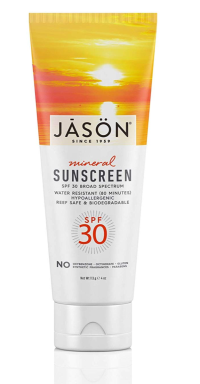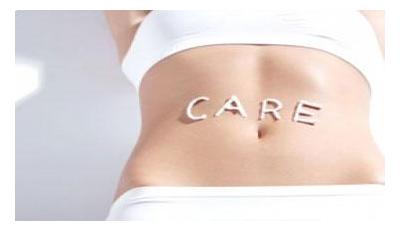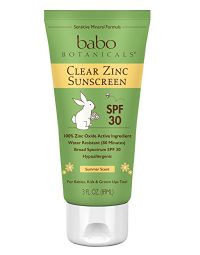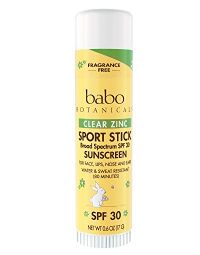Sunscreen and sunblock- are these the same thing? How are they different? The truth is that the term “sunblock” is ambiguous and has several different meanings depending on who uses it. In the United States and the European Union, the term “sunblock” is not allowed to be used for sunscreen labeling or marketing because it is misleading.
” For over 40 years, sunscreens/sunblock have become the most popular means of protection against UV radiation (UVR) in Western countries. ;(NIH.gov)
” For over 40 years, sunscreens/sunblock have become the most popular means of protection against UV radiation (UVR) in Western countries. ;(NIH.gov)

As a cosmetic product, sunscreen is regulated by the Food and Drug Administration (FDA) in the United States and the European Commission in the European Union. In the past decade, stricter guidelines have been put into place to control what can and cannot be claimed about sunscreen products, and what tests a sunscreen must pass in order to make such claims. Some claims are not allowed for any over-the-counter sunscreen product that may be considered misleading or overstate the effectiveness of the product. For example, the FDA does not allow companies to claim their sunscreens are “waterproof” or “sweat-proof,”1 and the European Commission does not permit companies to claim their sunscreen provides “all day prevention.”2
Previously, the term “sunblock” was often used to imply that a sunscreen completely blocked ultraviolet (UV) rays from the sun. Other similar phrases that were used included “total protection” or “100% protection.” In reality, no sunscreen is able to completely block 100% of all harmful rays from the sun. To help protect consumers from misleading advertisements, in 2006 the European Commission banned claims such as “total protection,” “sunblock,” or “sunblocker,” from being made about sunscreen products.2 Likewise, the FDA banned the use of the term “sunblock” from being used in labels and marketing of sunscreen products in 2011.1
If you see a product claiming to be a “sunblock” which is superior to “sunscreen,” this is a false statement.


Barrier vs Chemical Sunscreens
Some people use the term “sunblock” to mean a barrier sunscreen, differentiating it from a chemical sunscreen. Though the term “sunblock” is incorrect, it does come from the mechanism by which barrier sunscreens work. Also known as “physical sunscreens,” barrier sunscreens contain minerals like zinc oxide or titanium dioxide which form a layer over your skin and physically block UV rays from getting through.3
Alternatively, chemical sunscreens contain manufactured chemicals which absorb UV light, keeping it from entering your skin cells. There are 12 chemical sunscreen ingredients which are approved for over-the-counter use by the FDA. Each chemical has a different spectrum of UV light which it protects against, so many sunscreen products contain more than one type of chemical.3 Some of these, like the popular oxybenzone, have been found to have harmful effects on the body when used extensively, and can be toxic to corals in the ocean.4,5
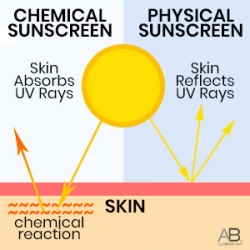

Broad-Spectrum Sunscreens
Some webpages and organizations state that sunblock is different from sunscreen in the type of UV rays that it protects against. Again, this is untrue, as the term “sunblock” cannot be used to describe the extent of a sunscreen’s protection. It is true, however, that some sunscreen ingredients only protect against UVA radiation, while most only protect against UVB radiation. Sunscreens labeled as “broad-spectrum” sunscreen protect against both types of UV rays, and are the best choice for optimal sun safety.3
UVA rays are the lowest energy of the types of UV. They can penetrate deeper into your skin and damage cellular structures like DNA. Most of the skin changes associated with aging are actually due to long-term exposure to UVA radiation- think “A” for “Aging.” UVB radiation, on the other hand, is higher energy than UVA, and only affects the surface of your skin. It is the cause of the immediate effects of sunburn- think “B” for “Burning.” For a sunscreen to be labeled as “broad-spectrum,” it must pass tests that prove that it protects against both UVA and UVB radiation.1,3
[1] United States Food and Drug Administration. June 23, 2011. “Questions and Answers: FDA announces new requirements for over-the-counter (OTC) sunscreen products marketed in the U.S.” https://www.fda.gov/drugs/resourcesforyou/consumers/buyingusingmedicinesafely/understandingover-the-countermedicines/ucm258468.htm
[2] European Commission. September 22, 2006. “Commission Recommendation of 22 September 2006 on the efficacy of sunscreen products and the claims made relating thereto.” Official Journal of the European Union; 265:39. https://eur-lex.europa.eu/LexUriServ/LexUriServ.do?uri=OJ:L:2006:265:0039:0043:en:PDF
[3] Environmental Protection Agency. “Sunscreen: The Burning Facts.” EPA 430-F-06-013, September 2016. https://www.epa.gov/sites/production/files/documents/sunscreen.pdf
[4] Krause M, Klit A, Blomberg Jensen M, Søeborg T, Frederiksen H, Schlumpf M, Lichtensteiger W, Skakkebaek NE, Drzewiecki KT. 2012. “Sunscreens: are they beneficial for health? An overview of endocrine disrupting properties of UV-filters.” International Journal of Andrology. May; 35(3). https://onlinelibrary.wiley.com/doi/full/10.1111/j.1365-2605.2012.01280.x
[5] Nelson M. “Is Your Sunscreen Stressing Out Coral Reefs?” Prized Writing. 2013-2014: 120-127. UC Regents, Davis Campus. http://prizedwriting.ucdavis.edu/sites/prizedwriting.ucdavis.edu/files/users/snielson/120isyoursunscreenstressing.pdf
-
Pregnancy-Safe Sunscreens
By Dr. AnnaDecember 20, 2021 -
Physical vs Chemical Sunscreens
By Dr. KarenDecember 26, 2021 -
Reef Safe Sunscreens
By Dr. KarenDecember 21, 2021 -
Zinc Oxide Sunscreen
By Dr. KarenDecember 21, 2021 -
Best Baby Sunscreen
By Dr. AnnaDecember 17, 2021
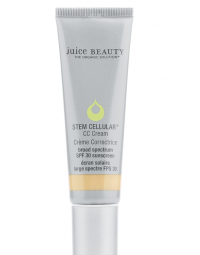
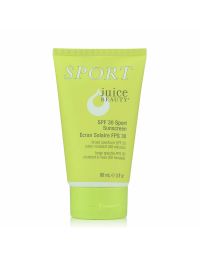
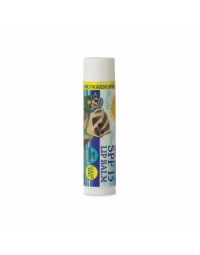
Search the blog
Article Categories
- All Articles (95)
- Rating Charts (1)
- Beauty & Skincare (17)
- FAQ (0)
- Hair Care (9)
- Health & Wellness (12)
- Anti-Aging (4)
- Kid's Health (0)
- Makeup (2)
- Men's Health (2)
- Oral Care (3)
- Sunscreen (7)
- Skin Tools & Treatments (10)
- Supplements (26)
- Videos (0)

